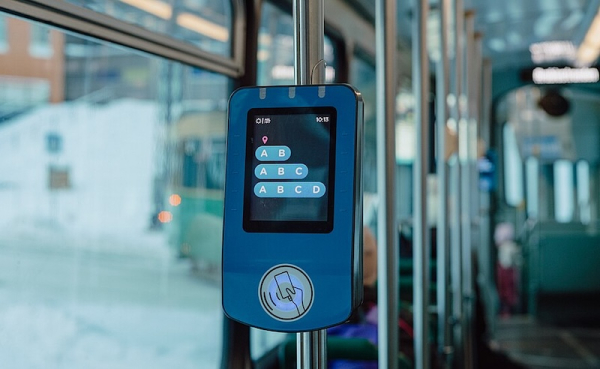Helsinki warns AB ticket could hit €90 as city rejects HSL fare hike plan

HSL (Helsinki Regional Transport Authority) ticket reader machine. Photo: Safa Hovinen / Flickr
- Next Article Economists warn of deflation risk as Finland’s inflation nears zero
Helsinki officials are challenging proposed fare increases by the Helsinki Regional Transport Authority (HSL), warning that monthly AB-zone tickets could reach nearly €90 within three years unless alternative funding solutions are found.
The city’s Urban Environment Committee rejected HSL’s draft financial plan for 2026–2028 on Tuesday, criticising the planned price hikes as inconsistent with the city’s strategic goal of making public transport more affordable.
HSL is proposing a 6.4 percent fare increase for 2025, with further hikes that would cumulatively raise prices by over 20 percent by 2028. Under this plan, a 30-day AB-zone pass would cost close to €90, and a single ticket around €3.85. The current price for a single AB ticket is €3.20.
Deputy Mayor Johanna Laisaari (SDP) said the increases risk undermining public transport usage.
“The goal of the city strategy is for ticket prices to decrease during this council term. I hope HSL can find other ways to balance its finances,” Laisaari said.
Both the National Coalition Party and the Social Democrats back a long-term reduction in real ticket prices, but they agreed the starting point for comparison should be the post-hike price level in 2026, which remains uncertain.
The committee rejected a proposal by the Greens and the Left Alliance to oppose any fare increases in 2025. Amanda Pasanen (Greens) argued that recent price changes have disproportionately affected AB-zone users.
“The trend in recent years has been rising costs for Helsinki residents,” Pasanen said. Her motion was defeated 8–5, with SDP and NCP voting against it.
The city also removed from its official statement a reference to increasing its municipal contribution to HSL by the same 6.4 percent proposed for fare hikes. That contribution will instead be decided as part of Helsinki’s autumn budget process. A cap on the city’s share could place further pressure on fares.
Despite political differences, all council factions agreed that HSL’s pricing plans conflict with the city’s targets. Officials warned that high prices make public transport less attractive, particularly for families in outer districts and occasional riders in central areas.
The high cost is also seen as encouraging private ride services. Operators like Bolt are viewed as increasingly competitive on short trips compared to tram fares.
The committee recommended introducing one-zone tickets to increase pricing flexibility and better match actual travel needs. These are not currently offered in the HSL system, which requires a minimum of two zones for most journeys within Helsinki.
Helsinki is also pushing for changes to how HSL compensates municipalities for the use of infrastructure such as tramways. The city argues the current system, where HSL pays municipalities for using their transport infrastructure, creates ongoing pressure to raise fares.
“The model is unreasonable,” Pasanen said. “To my knowledge, no other city in the world operates this way.”
At the same time, municipalities benefit from land value increases when transport infrastructure allows new construction in well-connected areas. Helsinki wants to renegotiate the compensation model in cooperation with HSL and other member municipalities.
While Helsinki plays a key role in shaping the conversation, decisions on HSL fares and ticket types are made by HSL’s board, which includes representatives from all member municipalities.
The city’s position will now move to the Helsinki City Board for further discussion.
HT
- Next Article Economists warn of deflation risk as Finland’s inflation nears zero
Source: www.helsinkitimes.fi
